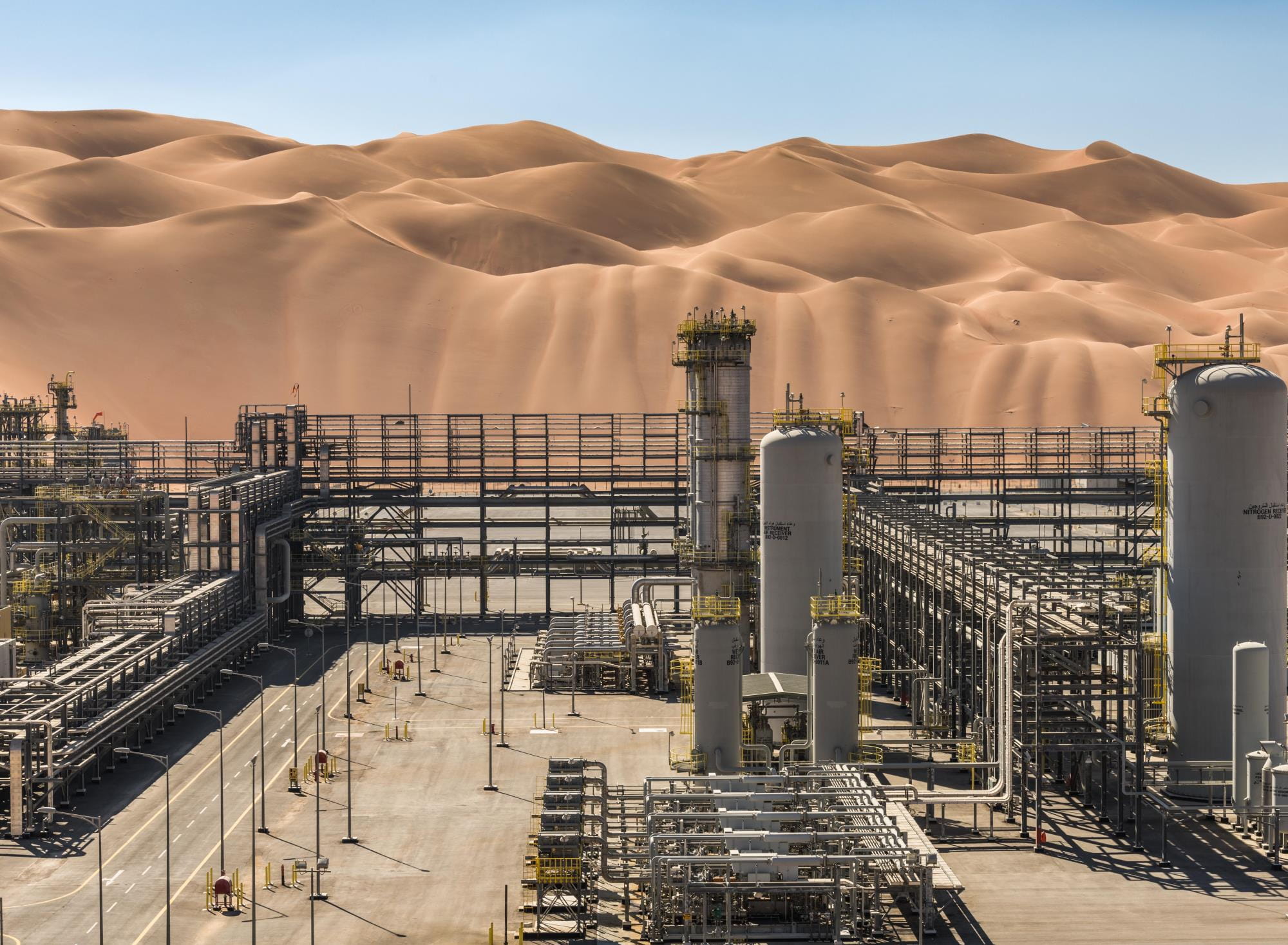
MEGA PROJECTS
Shaybah
At Aramco, we are explorers at heart, always searching for new frontiers. A new frontier can be exploring a new geographic area, creating a new technology, entering a new partnership, or enabling new opportunities for our business.
The harshest environment
When it comes to petroleum geology, Saudi Arabia is home to some of the best in the world. Much of this geology is located in remote, inhospitable places, but that hasn’t stopped us from meeting the challenges of those harsh environments, and investing in projects that help meet global energy demand.
In the 1940s and ‘50s, our geologists were trying to piece together a puzzle: what was the full extent of the Kingdom’s subsurface petroleum structures? Our early explorers journeyed into some of the harshest, most desolate environments in the world to answer this question. In 1948 they discovered the Ghawar field — the largest crude oil field in the world at time of discovery — on the edge of the Rub’ al-Khali. But what lay undiscovered beyond it, deep in the heart of the Empty Quarter?
We set out on a journey of discovery into the most unforgiving terrain and the most inaccessible area in which we had ever searched for oil.
Finding the hidden treasure
In 1968, in the middle of Rub’ al-Khali desert, approximately over 500 miles from our headquarters in Dhahran, the search paid off. We discovered a vast oil field, guarded by dunes of red and golden sand 1000 feet (333 m) tall and regularly buffeted by winds of up to 80 kmph (50 mph). And where temperature in summer routinely reaches 122 degrees Fahrenheit (50 degrees Celsius). The terrain, climate, and the complexity of the logistics, however, meant that development was out of the question, so the field lay silent for another thirty years.
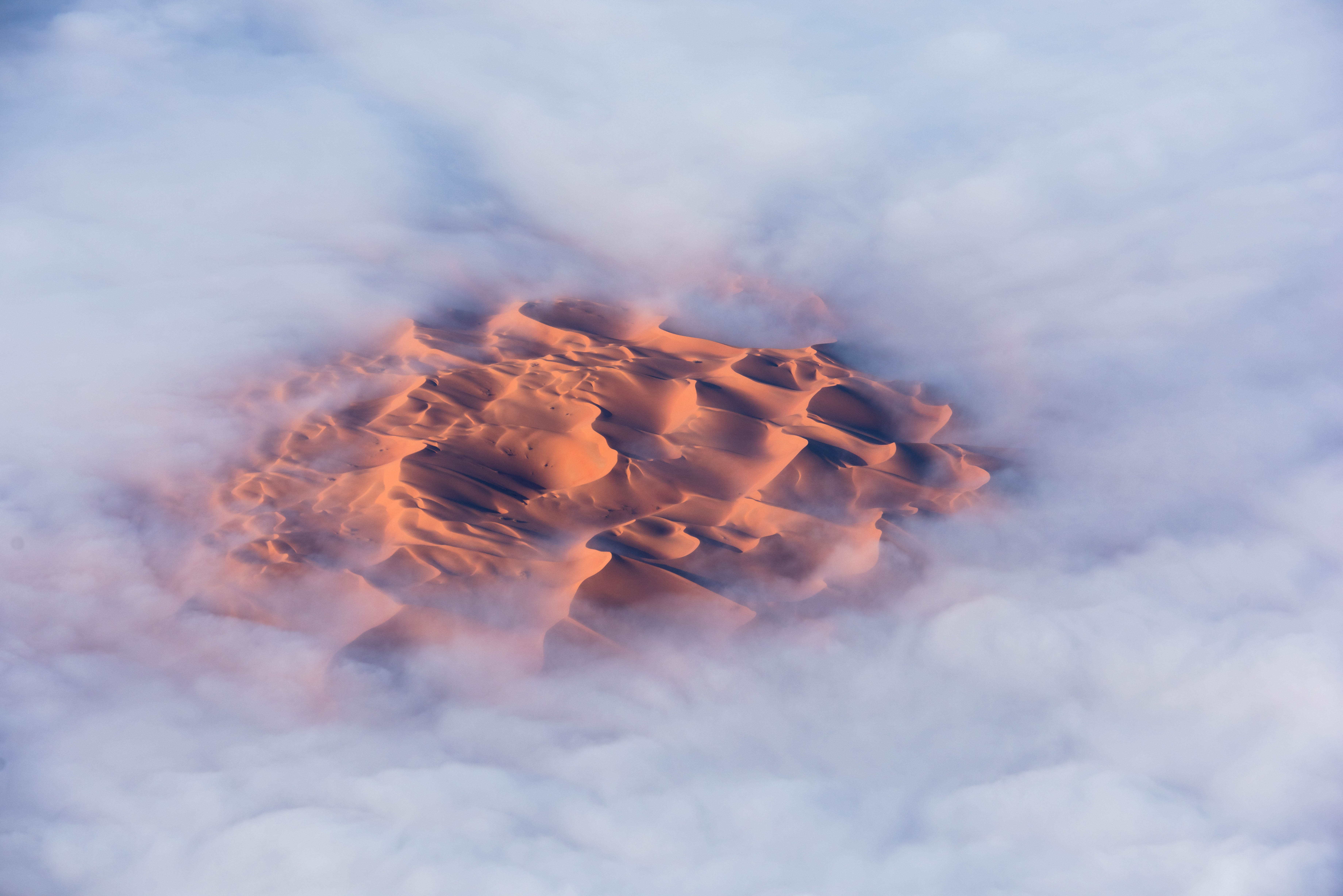
Rub' al-Khali desert from above.
Extreme engineering in extreme conditions
By the time of our major expansion phase in the 1990s, advances in technology — and in our own engineering capabilities — had given us the confidence and ability to take on more challenging projects.
It was now time to turn our attention back to that massive oil field deep in the Rub’ al-Khali.
From dream to reality
We knew we’d need innovative ideas to meet the significant engineering challenges. It was this approach, alongside our advances in horizontal drilling, 3D seismic imaging, and other leading edge technology, that opened Shaybah up as an opportunity.
With the ideas, strategy, and design in place, construction began in 1995. Approximately 13 million cubic meters of sand were moved. A 386 km road was built through the desert. And a fully operational airport. A 645 km pipeline was laid to processing facilities further north. 145 oil wells drilled. Three gas oil separation plants built. And finally, extensive support and residential facilities were put in place, to house people staying in one of the most remote places on earth for weeks at a time.
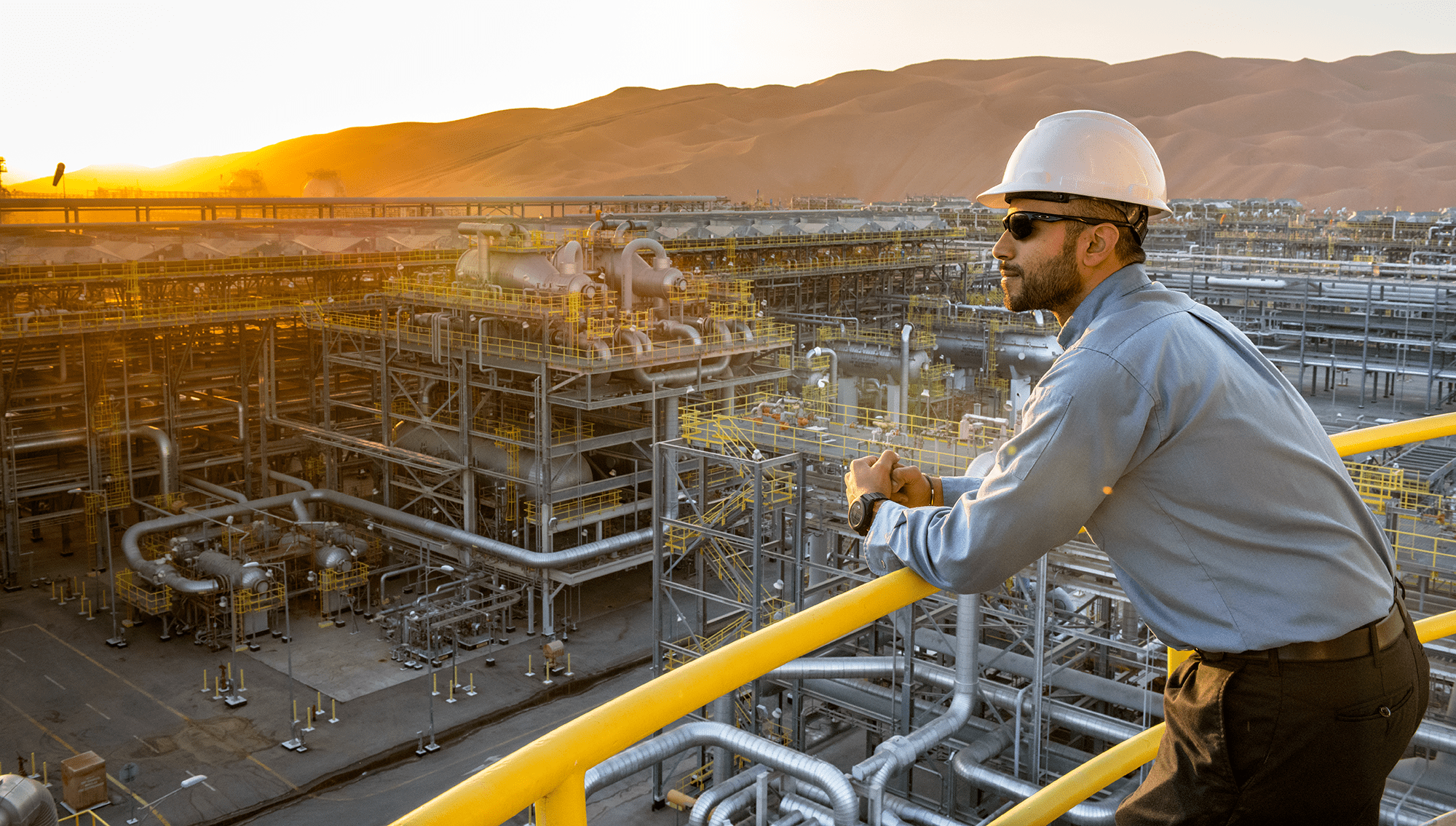
Shaybah surrounded by the towering sand dunes.
Shaybah in numbers
1 million
barrels of oil per day produced.
13 million
cubic meters of sand moved.
145
oil wells drilled.
386 km
road built through the desert.
50 million
man-hours on construction.
645 km
pipeline laid.
Shaybah comes to life
By 1998, with endurance, commitment, and determination, we overcame tremendous obstacles, and completed the project a whole year ahead of schedule. It took a colossal 50 million man-hours to do so.
The Shaybah Team still recall the spine-tingling excitement they felt waiting for the first few drops of oil to reach the facility. And those first few drops soon turned into half a million barrels of oil per day.
Despite this success, we knew there was even greater potential for Shaybah. And so we embarked on two new projects: the Oil Field Expansion Project and the Natural Gas Liquids (NGL) Recovery Project.
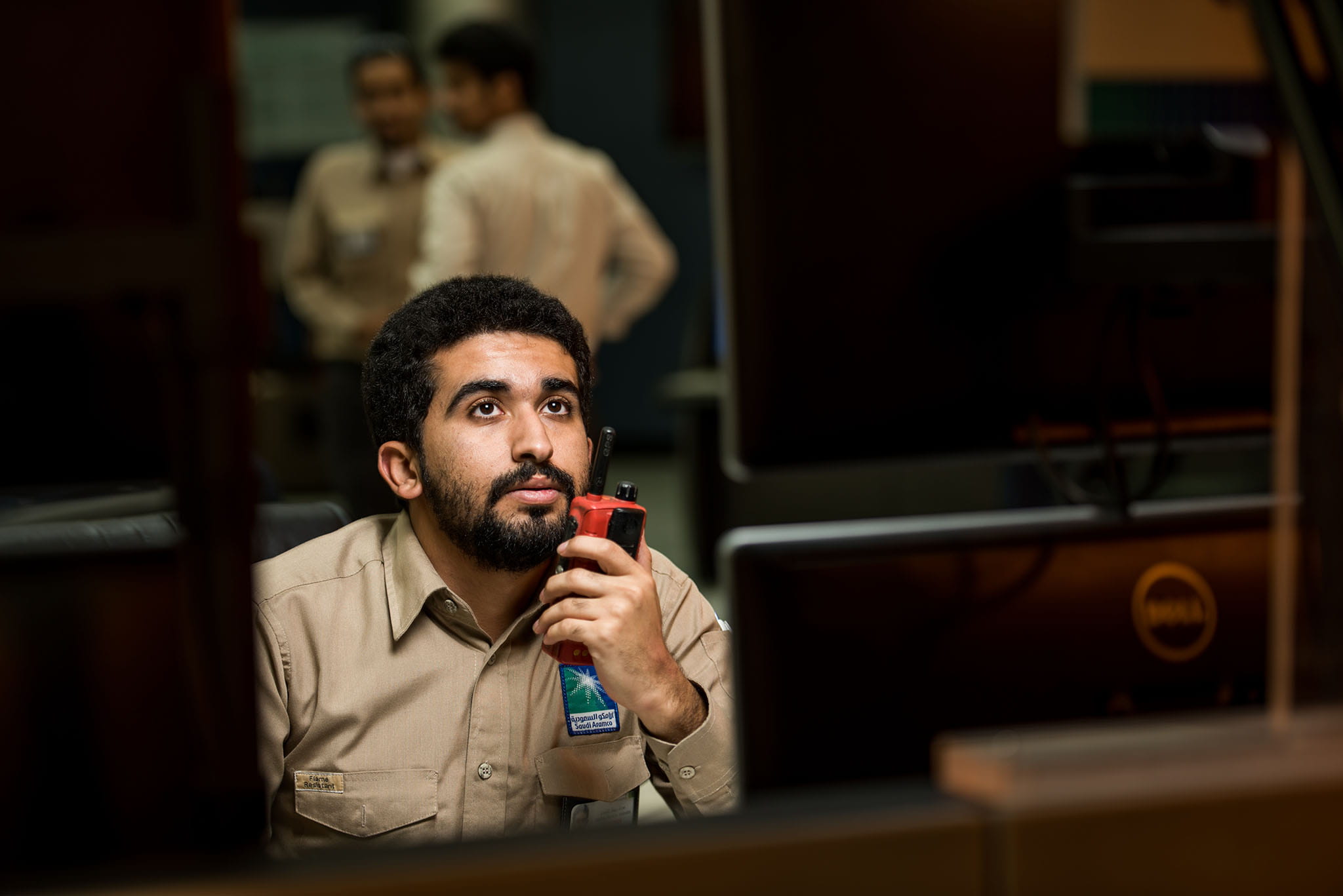
The Oil Field Expansion Project
The first phase of our Oil Field Expansion Project raised production to three quarters of a million barrels of high-value Arabian Extra Light (AXL) crude oil per day by 2009. But with ever higher ambitions, in 2016, we boosted production by a further 250,000 barrels, raising Shaybah’s total production capacity to one million barrels per day — double the initial capacity.
The Natural Gas Liquids (NGL) Recovery Project
We also added a 2.4 billion standard cubic feet per day (Bscfd) Natural Gas Liquids recovery plant, providing large volumes of ethane, critical for industrial development, as well as other NGLs. We also conducted a major upgrade to boost power generation capacity from cogeneration to more than one gigawatt.
Given the role Shaybah was to play in meeting growing feedstock demand, this project opened a new era for the Kingdom’s chemicals industry.
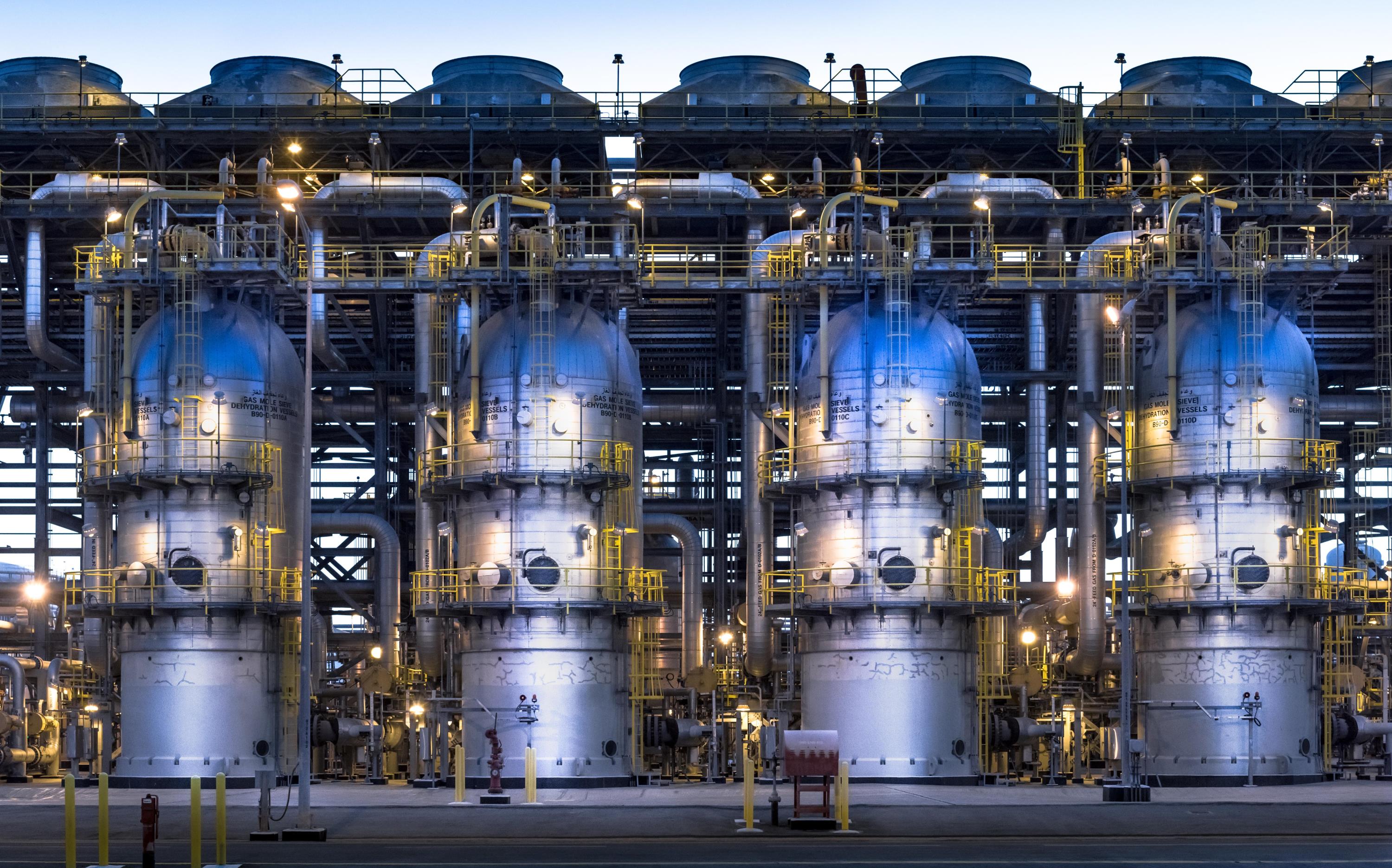
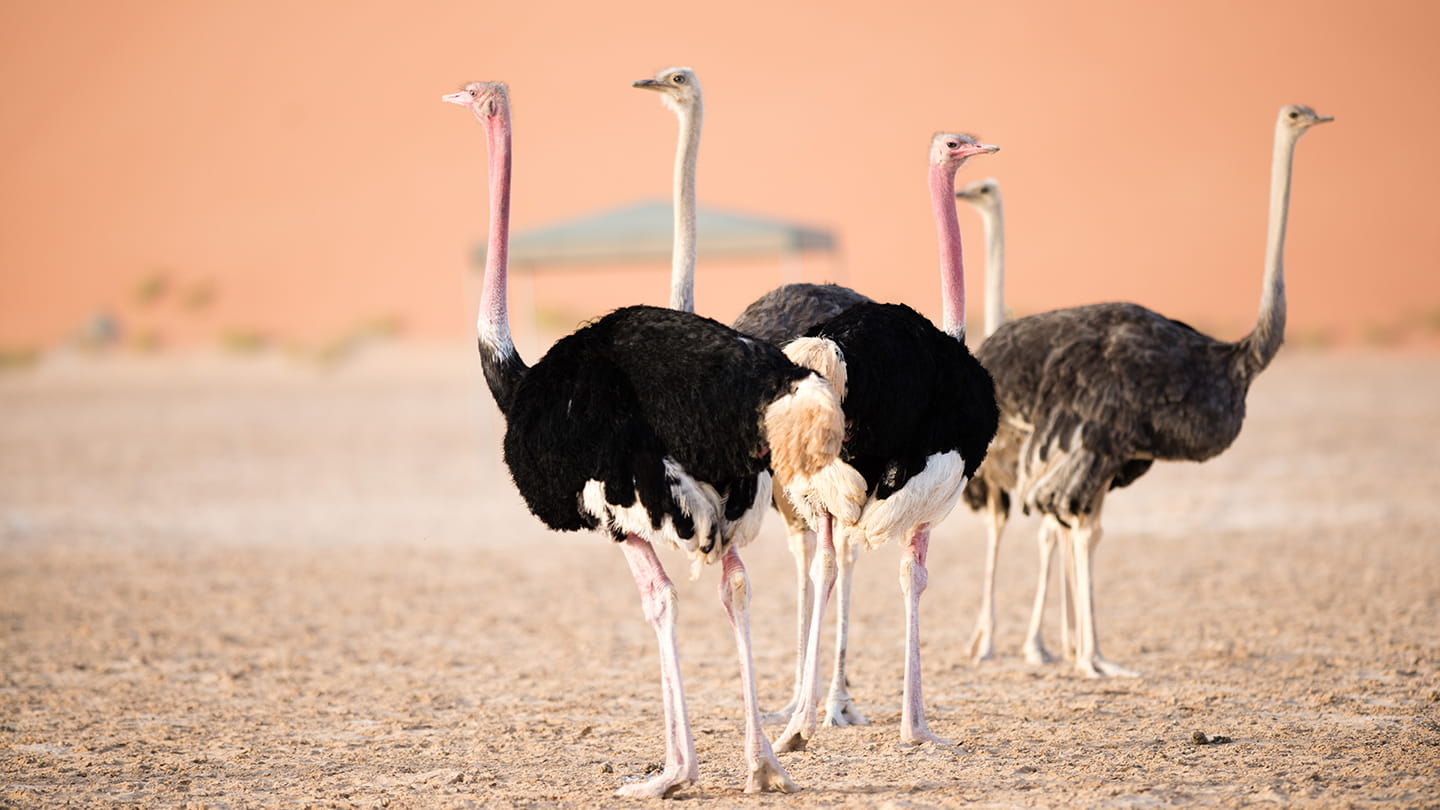
Shaybah Wildlife Sanctuary
The 637-square-kilometer Shaybah Wildlife Sanctuary, located adjacent to our mega-facilities in the area, is testament to our commitment to care for our environment wherever we operate.
Fueling the world
Shaybah is a prize-winning example of our ability to plan for and meet global energy demand, and do it in harmony with the natural environment.
Equally important to us, our Shaybah project won a GCC environmental excellent stewardship award in 2011 for implementing flaring reduction technology, waste water recycling, emissions recovery, and wildlife protection. With sand gazelles and oryx living near the site itself, we have taken extraordinary measures to ensure the preservation of their natural habitat.
Ultimately, Shaybah is proof that with ingenuity, drive, and dedication, anything is possible.